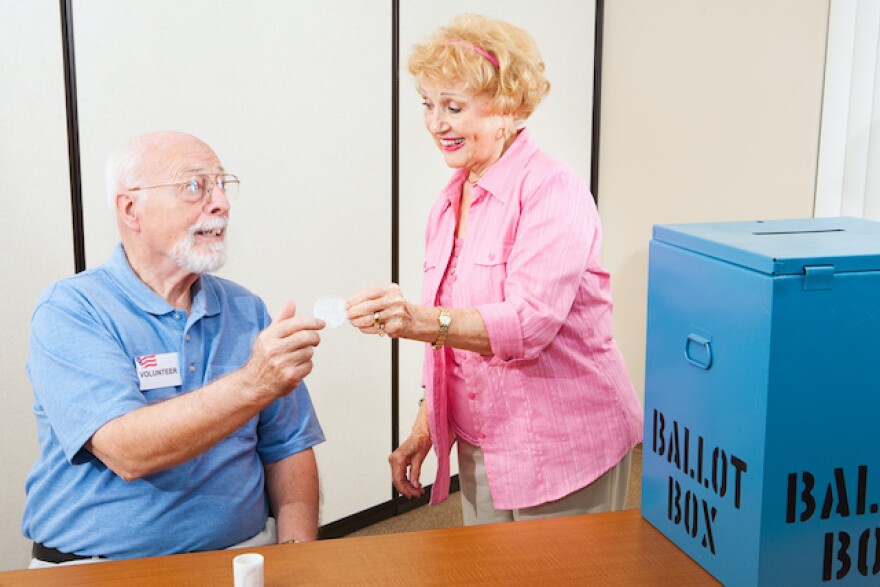With the highest turnout for primaries in 40 years, Idaho's unique all-absentee election in May presented a challenge for the state.
The Idaho Secretary of State's office said it plans to run this November's event more like past elections -- if counties can find enough poll workers.
The search is complicated by the fact that poll workers tend to be older and more susceptible to COVID-19.
Danielle Root, associate director of voting rights and access to justice for the Center for American Progress, said failing to find election workers would be a threat to the safety and effectiveness of the state's voting system.
"If we do not have enough poll workers, polling places will close, early voting periods -- which are so important -- will be slashed or eliminated entirely because there just aren't enough people to work them," she said.
Idaho ran an all-mail ballot in May in part because it had trouble finding poll workers.
Even if the general election isn't all-absentee, more Idahoans are likely to vote by mail.
Root notes that the state allows no-excuse absentee balloting, meaning people don't have to give a reason for voting by mail.
She said that also means the state has to beef up staffing on the back end to make sure mailed ballots get counted.
"In the 2016 election, mail ballots only constituted about 28% of all ballots cast," she said. "We're going to see huge increases in November in reliance on vote by mail and states need to be able to handle all of those new mail ballots."
Root said more funding is needed for elections. The CARES Act allotted about $400 million, but she said that's a 10th of what experts said the country needs.
Ryan Pierannunzi is manager of the Fair Election Center's WorkElections.com project, which started in 2018 to help counties recruit poll workers. He said in 2016, more than half of workers were older than 60 -- people who are considered a high risk group from COVID-19.
"It's going to have a major impact on the ability for people who have traditionally served as poll workers to come out and serve again this year," Pierannunzi said.
This is where the WorkElections.com website could come in handy, including for help with mail-in ballot counting.
Pierannunzi said the project is designed to put the varying poll-work requirements from county to county in one place.
"It's very decentralized, and so one of the challenges that this website tries to help address is how difficult it is for people to get information on what they need to do to sign up to serve in their area," he said.
Support for this reporting was provided by the Carnegie Corporation of New York.



